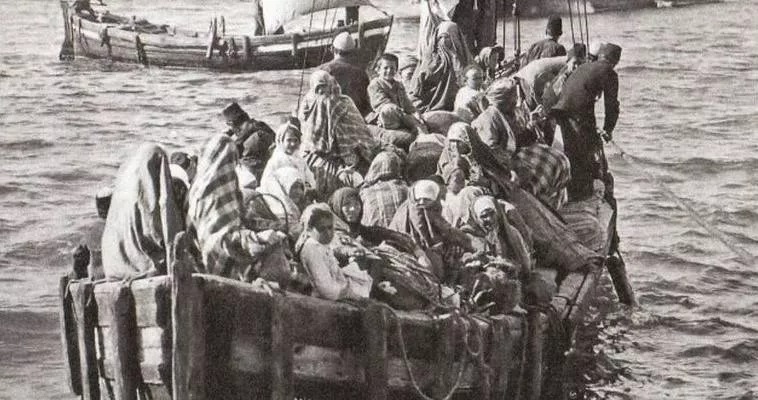Every time people are forced to leave their homeland to save their lives or in search of a better fate, their path to exit is not strewn with rose petals.
Looking back at the history of peoples, we often encounter refugee treks crossing barren lands, seas and mountains to escape from enemies or poverty. Not everyone emerges unscathed from these journeys.
Many breathe their last, and their fellow travellers—be they relatives or strangers—are forced to move on. Often, they don’t even have the time, strength, or right to bury their dead. They proceed, hoping not to share the same fate.
Ilias Venezis experienced such a trek at the age of 18 when he was forced to leave Ayvalik. When he reached Greece, he described his experience in the book “Number 31328”, which was taught in schools for many years. Since its first publication in 1931, it was reissued 35 times until 2011.
Other authors described similar situations –not fictional ones–: Dido Sotiriou in “Farewell Anatolia”, Thea Halo in “Not Even My Name” based on her mother’s story, who lost her entire family during the Pontian Greek genocide while she, a small child, continued to march.
The dead might have haunted the survivors’ dreams throughout their lives, but they knew there was nothing they could do to save them or even to bury them to prevent them from being devoured by birds of prey.
History turned many pages, added many chapters, but the story keeps repeating itself in the same or similar ways. People continue to march towards hope by any means possible. And the roads remain blood-stained.
When someone dies along the way, the others can only continue. Especially when they are on a boat going nowhere, as days pass without water, food, in the cold, in the heat, someone dies.
The passengers have no choice but to cast them into the sea with a prayer. It’s not because they don’t feel pain; it’s because they can’t do otherwise. So, when we hear that a father threw his child, who had died from hardships, into the sea, it’s not because he’s barbaric.
The real barbarity is to judge from a place of safety, even if half a century ago, we too took to the roads to save ourselves.
Read more:






